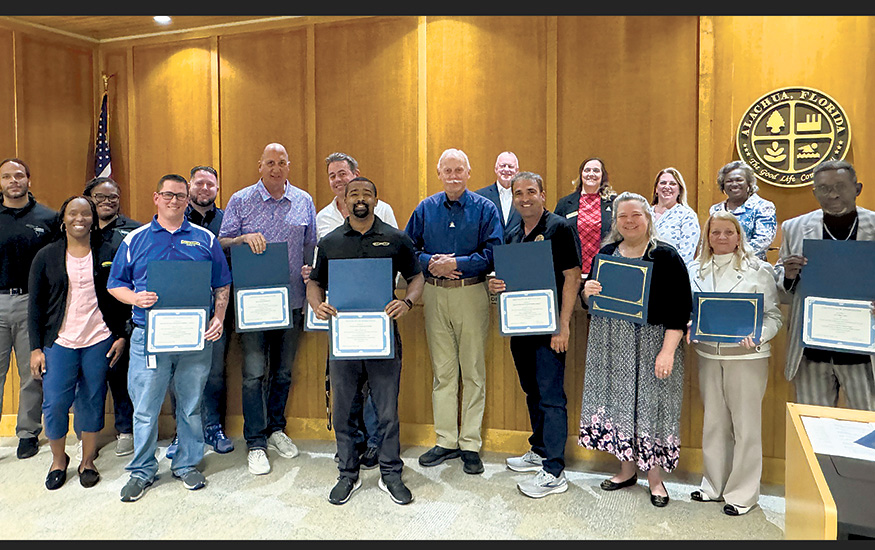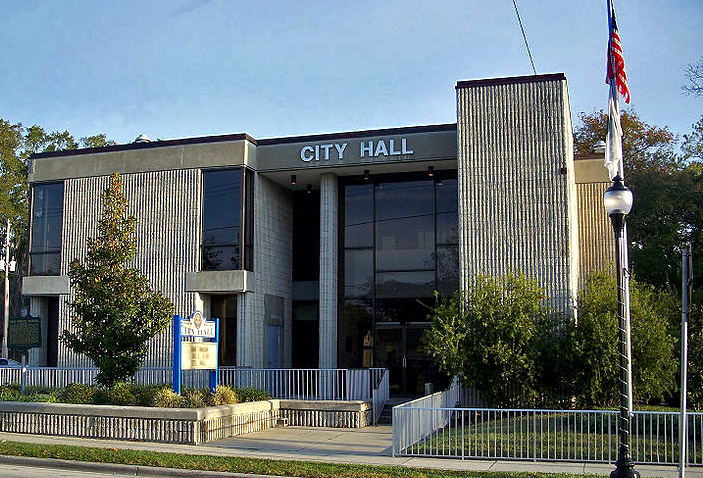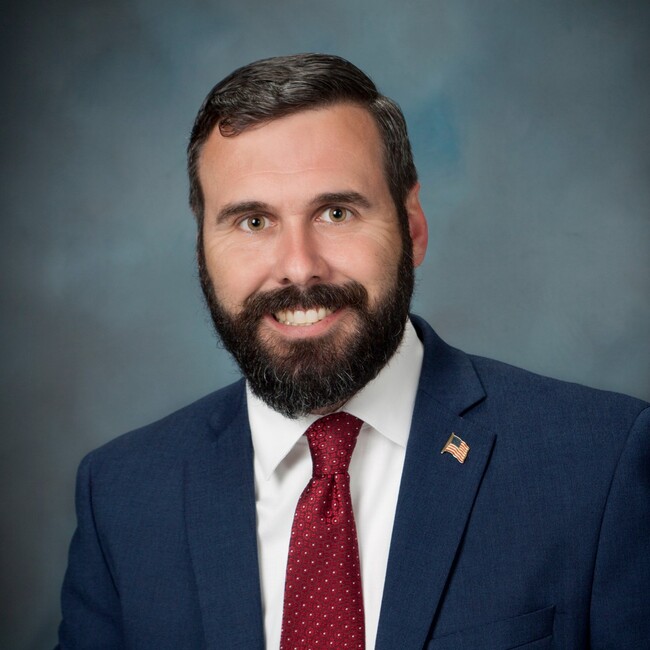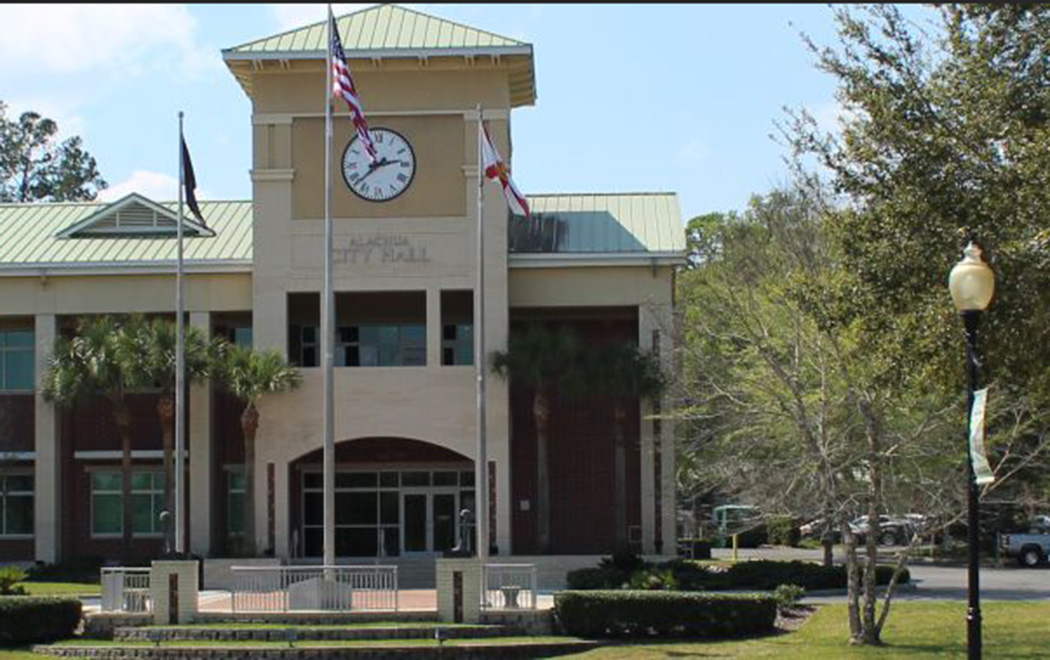ALACHUA ‒ In a heartening display of community pride, the Alachua City Commission came together on March 25, 2024 to acknowledge and commend businesses and individuals who generously donated funds and goods to support the City sponsored Alachua Youth Council project, “Restoring Dignity – One Wellness Packet at a Time.”
Conducted in late fall to early winter 2023, the effort was an initiative spearheaded by student members of the Alachua Youth Council (YAC) that aimed to provide basic hygiene supplies and support to their fellow students at Santa Fe High School.
The local group of concerned and community-minded high school students discovered an unmet need among their fellow students at Santa Fe High School. In cooperation with the school nurse, the YAC learned there were students coming to school who were in need of basic hygiene supplies.
YAC members devised a plan to elicit help from the community to collect items most in need. The group organized “Restoring Dignity – One Wellness Packet at a Time,” a collection drive for items such as deodorant, toothpaste, toothbrushes, bar soap, underwear and socks.
A number of businesses established drop off locations for donated supplies, and many businesses and individuals donated both goods and money to support the students in the effort.
On March 25, YAC members Selina Liu and Abby Bloomer presented certificates of appreciation to project partners. Among the notable contributors recognized were:
- Alachua City Hall
- Alachua Family Eye Care
- Decades on Main (High Springs)
- Dollar General Distribution Center
- Douglas M. Adel, DDS, P.A. (Alachua)
- China Express (Alachua)
- Great Clips (Alachua)
- HCA Florida Hospital (Gainesville)
- Hitchcock’s Markets Pharmacy Desk (Alachua)
- Infinite Wellness Gym (Alachua)
- Joe Hancock
- Kelly’s Kreations
- Marian Rush of City of Alachua
- Mitch Glaeser of San Felasco Tech City
- New York Pizza Plus (Rolling Oaks Plaza)
- O2B Kids (Alachua)
- Okito America
- Paradise United Methodist Church
- Publix (Alachua)
- River of Life Church
- Paul AME Church
- Santa Fe High School Guidance Office (Alachua)
- The Healing House
- Tony & Al’s Deli (Alachua)
- Walgreens (Alachua)
The YAC serves as advocates for issues and initiatives to positively impact the lives of youth, discusses issues and offers suggestions for improvement to benefit youth in the community.
YAC members must be enrolled in a public school, private school or a home education program within the City of Alachua in grades nine through 12 or must be a City of Alachua resident enrolled in a public school, private school or a home education program in grades nine through 12 that is not within the City of Alachua's corporate limits.
# # #
Email editor@
alachuatoday.com
Add a comment



 The six-page employment agreement is for an initial period of one year beginning on April 8, 2024 and ending on April 7, 2025. The agreement stipulates that it will automatically be renewed for successive one-year terms unless notice to terminate is given at least 90 days prior to the end of the contract term.
The six-page employment agreement is for an initial period of one year beginning on April 8, 2024 and ending on April 7, 2025. The agreement stipulates that it will automatically be renewed for successive one-year terms unless notice to terminate is given at least 90 days prior to the end of the contract term.

 On Saturday, April 6, 2024, an FHP officer conducted a traffic stop on a Chevrolet van on U.S. Highway 441 and Northwest 89th Street in Alachua. A 36-year-old man from Seminole County was driving with a suspended driver’s license. The stop was made after the officer determined that the license plate and tag were owned by a Gilbert Jean, who did not have a valid license.
On Saturday, April 6, 2024, an FHP officer conducted a traffic stop on a Chevrolet van on U.S. Highway 441 and Northwest 89th Street in Alachua. A 36-year-old man from Seminole County was driving with a suspended driver’s license. The stop was made after the officer determined that the license plate and tag were owned by a Gilbert Jean, who did not have a valid license.

